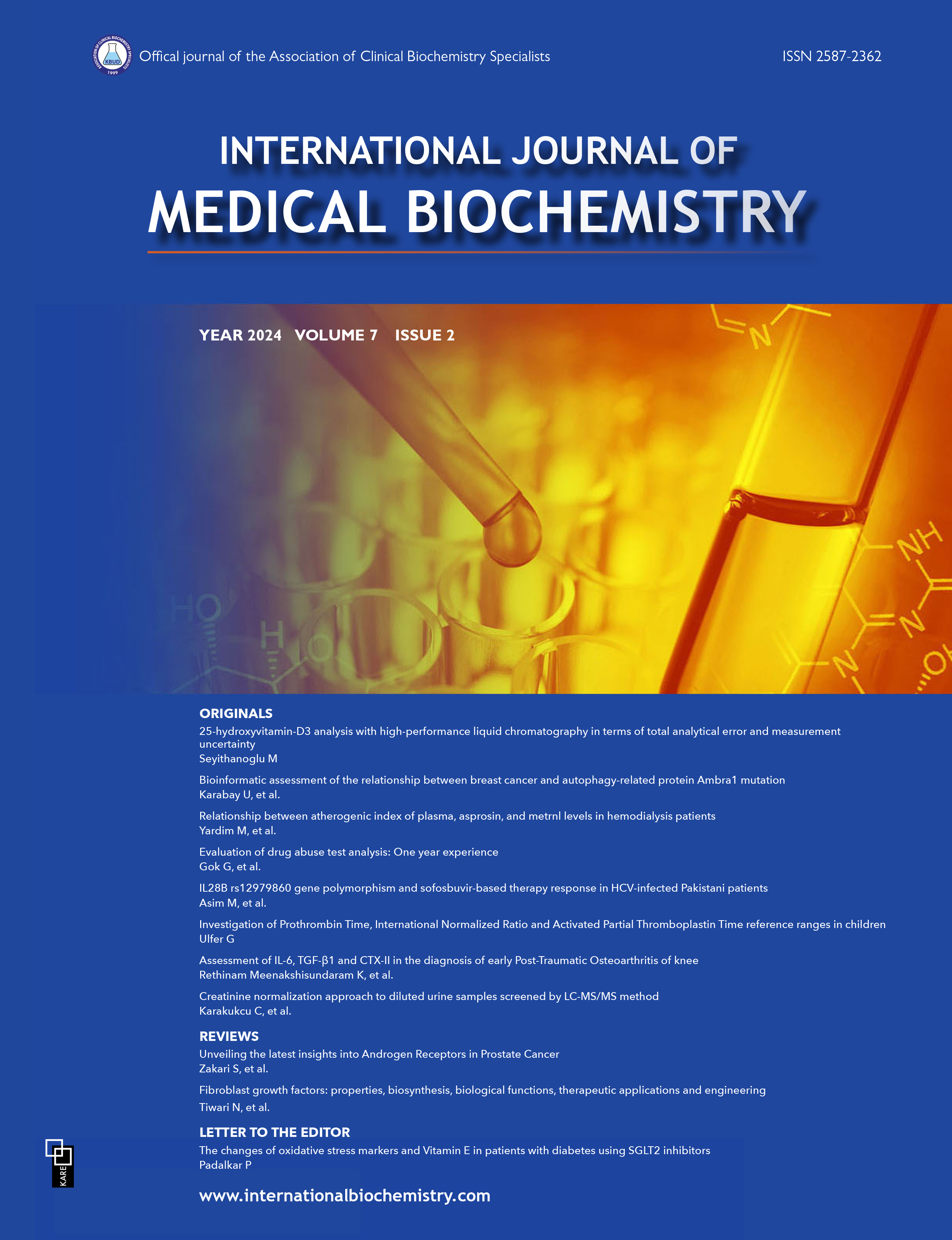The relationship between serum vitamin D levels and hematological inflammatory indices in patients with heart failure
Yasemin Ustundag1, Canan Demir2, Mehmet Demir3, Kagan Huysal1, Meryem Rumeysa Yesil1, Muhammed Said Karaca11Department of Clinical Biochemistry, University of Health Sciences, Bursa Yuksek Ihtisas Training and Research Hospital, Bursa, Türkiye2Department of Infectious Diseases and Clinical Microbiology, Bursa City Hospital, Bursa, Türkiye
3Department of Cardiology, University of Health Sciences, Bursa Yüksek İhtisas Research and Training Hospital, Bursa, Türkiye
INTRODUCTION: Recent studies have suggested that chronic systemic inflammation increases the risk of development and progression of heart failure (HF). Vitamin D may contribute to the pathogenesis of HF by modulating inflammatory pathways. Changes in brain natriuretic peptide (BNP) levels are critical for the diagnosis and assessment of HF severity. We aimed to investigate the association between serum vitamin D levels, BNP, and novel hematological systemic inflammation indices in chronic heart failure (CHF) patients.
METHODS: In this retrospective study, we report data from 187 participants admitted to the outpatient clinic, with 85 CHF and 102 without CHF (control group). Vitamin D, BNP, and complete blood cell samples were analyzed. Novel hematological systemic inflammation indicesthe systemic immune-inflammation index (SII; neutrophil × platelet / lymphocyte), the systemic inflammation response index (SIRI; neutrophil count × monocyte/lymphocyte count), the pan-immune-inflammation value (PIV; neutrophil count × platelet count × monocyte count)/lymphocyte count, monocyte-to-lymphocyte ratio (MLR), and platelet-to-lymphocyte ratio (PLR)were calculated
RESULTS: Binomial logistic regression showed that only MLR was significantly associated with CHF (P < 0.001). A weak, negative, and statistically significant correlation was found between BNP and vitamin D (r=-0.185, p=0.011) levels. There was a weak negative correlation between vitamin D and PLR (r=-0.196, p=0.007), PIV (r=-0.145, p=0.048), and SIRI (r=-0.156, p=0.033).
DISCUSSION AND CONCLUSION: An independent association between systemic hematological inflammatory indicators and vitamin D with the severity of CHF expressed by elevated BNP levels was revealed.
Corresponding Author: Yasemin Ustundag, Türkiye
Manuscript Language: English




















